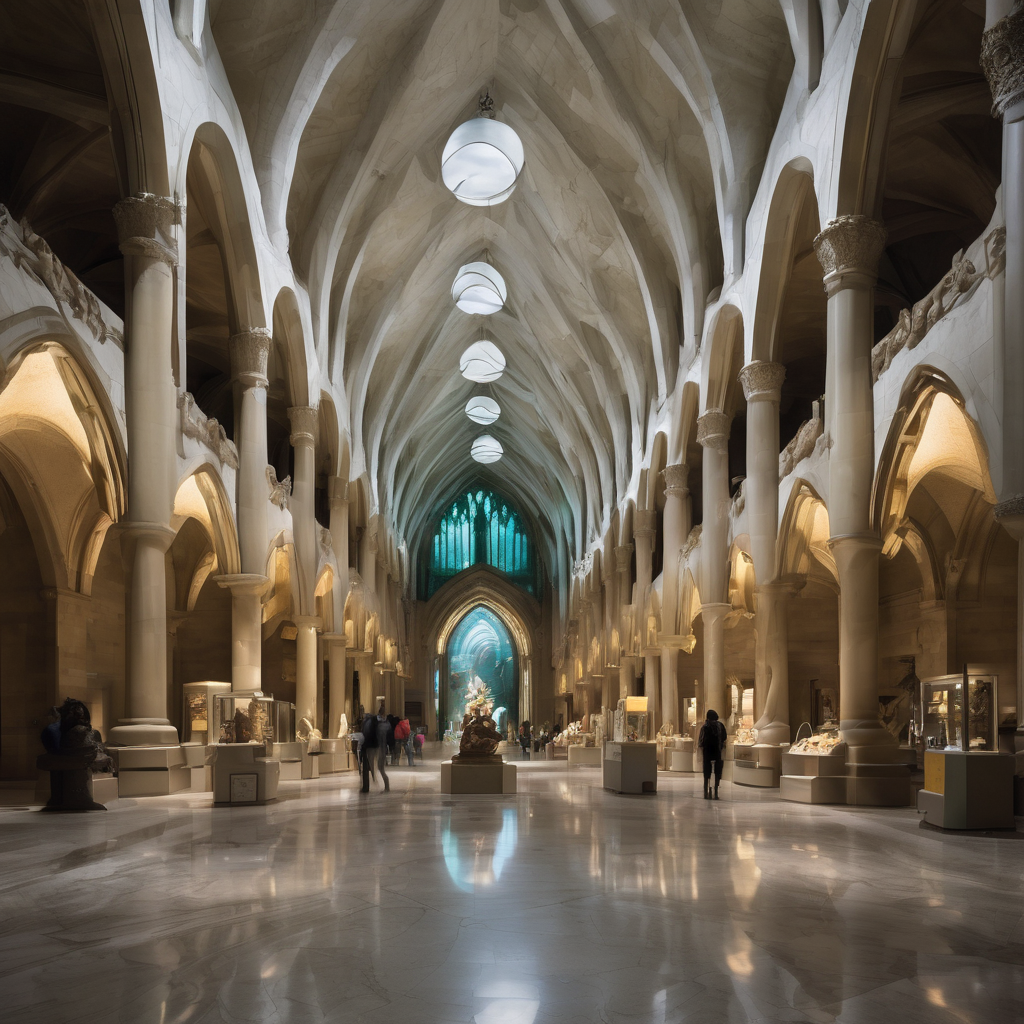The dental hygienist found the first tooth sprouting from the museum’s marble floor on a Tuesday. It pushed through the stone like a mushroom through soil, enamel gleaming under the track lighting that illuminated the medieval tapestries. By Thursday, the entire east wing had become a forest of molars and incisors, some as tall as her waist.
Marina had been cleaning teeth for fifteen years, but she’d never heard them sing before. The sound started low—a hum that vibrated through her rubber-soled shoes—then rose to something between wind chimes and whale song. She pressed her palm against the largest tooth, a magnificent canine that had erupted near the gift shop, and felt its warmth pulse against her skin.
“They’re looking for their bodies,” said the night security guard, an elderly man who claimed his grandmother had been a tooth witch in the old country. “Every extracted tooth remembers where it came from.”
Marina thought of all the teeth she’d watched dentists pull, the satisfying pop as they released from the jaw, the patients’ relief despite the blood. She’d kept one once—a perfect wisdom tooth from a young woman who’d requested it as a keepsake but never returned to claim it. Marina still carried it in her pocket like a worry stone.
The museum director wanted them removed, of course. She hired contractors who arrived with sledgehammers and industrial drills, but the teeth only grew back faster, harder, more elaborate in their formations. Some developed ridges like cathedral spires. Others sprouted in spirals that caught the afternoon light and cast shadows of DNA helixes on the walls.
Word spread through social media like wildfire. Influencers posed against the ivory towers for their followers. Scientists took samples that crumbled to dust the moment they left the building. A famous psychic claimed the teeth were growing from the bones of saints buried beneath the foundation, though the museum had been built on a former skating rink.
Marina began spending her lunch breaks among them. She brought her dental tools—the scalar, the mirror, the explorer—and cleaned them as if they were still nestled in living gums. The teeth seemed to appreciate this, their humming growing melodious when she worked.
On the twentieth day, she noticed something impossible: cavities were healing themselves, the dark spots filling with new enamel that glowed faintly blue. She thought of her patients who couldn’t afford fillings, who suffered through infections that spread to their hearts and brains. She thought of her daughter’s braces, the monthly payments that stretched her budget thin.
That night, she returned with a mason jar of extracted teeth she’d been collecting from the office’s medical waste—they were destined for incineration anyway. She scattered them like seeds across the museum floor and waited.
The sound began immediately: a crackling, grinding symphony as the teeth burrowed into the marble and began to grow. But these grew differently—horizontally, creating bridges and archways, forming what looked like a map or perhaps a language she couldn’t read.
The security guard found her there at dawn, tracing the patterns with her fingertips.
“My grandmother said teeth were memory stones,” he told her. “Every word we’ve spoken, every meal we’ve shared, every kiss—it’s all there in the calcium and phosphate.”
Marina pulled the wisdom tooth from her pocket and held it up to the light. She could see it now—tiny imperfections that looked like continents, or maybe faces, or possibly doors.
She placed it at the center of the pattern and stepped back.
The museum walls began to crack, but not with destruction—with growth. Teeth emerged everywhere, transforming the space into something between a mouth and a cathedral. Visitors would later describe it as the most beautiful and terrifying thing they’d ever seen, though no two people agreed on what exactly they were looking at.
Marina never returned to the dental office. She became the museum’s first Dental Curator, a position created specifically for her. She learned to read the patterns the teeth made, to understand their songs. She discovered that if you listened carefully enough, you could hear them telling stories—not of the mouths they’d come from, but of the words those mouths had never found the courage to speak.
The city council tried to shut it down twice, but the teeth had grown into the foundation by then, had become load-bearing. The museum was the teeth, and the teeth were the museum, and Marina walked among them daily with her tools and her careful hands, tending to the endless garden of calcium dreams that sang of all the things we swallow instead of saying.
Sometimes, late at night when the museum was closed and the teeth glowed with their own phosphorescent light, Marina would press her ear against the largest molar and hear her daughter’s voice from years ago, asking why teeth fell out if they were so important. She never had a good answer then.
She did now, but like most true things, it could only be expressed in the language of teeth growing back, reaching toward something that was always there, waiting to be remembered.

Leave a Reply